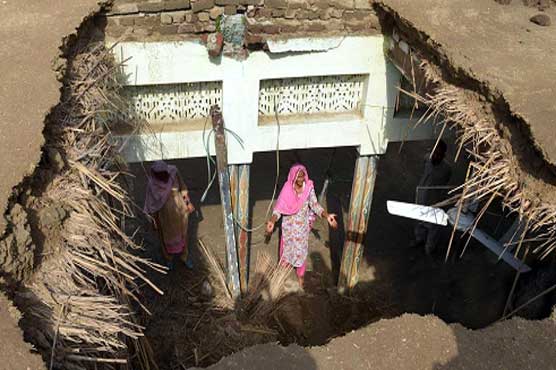
Since October 1-2014, Indian forces have committed 24 ceasefire violations on the working boundary and 26 on the LoC and most of the times only the civilian population living in the villages along the working boundary are the prime target of Indian forces.
To stop this game of allegations and counter allegations, the Government of Pakistan has suggested several times, a greater role of the UN Military Observers Group in India and Pakistan (UNMOGIP) to end LoC tensions and to ensure better implementation of the 2003 ceasefire agreement along the India-Pakistan border in Jammu & Kashmir and working boundary. However, the Indian Government has always, not only opposed such suggestions by Pakistan but has also asked the UN Observer Group on Kashmir to vacate their offices in New Delhi and restricted the activities of the UN observers on the Indian side of the Line of Control.
India and Pakistan made a cease fire agreement in 2003 after the crack down by the then President Pervez Musharraf against the militant groups in Pakistan, which believed that the militant struggle of the Kashmiri people was a legitimate freedom struggle in Kashmir. After the satisfaction over this issue of ban on militant organization, India agreed to a ceasefire.
This agreement not only brought peace in the lives of the people living on both sides of the border but also diminished the permanent tensions on the LoC between the Armies of both nuclear powers. Till January 2013, both sides followed the agreement and the LoC remained peaceful for a decade.
Cross border firing started again in January 2013, after a decade long peace on the LoC, when Indian forces attacked a Pakistani border post and killed one soldier. While the Indian news channels were blaming Pakistan for the tensions on the LoC, the Indian newspaper “The Hindu” came with the actual reason behind the tensions on the LoC. According to “The Hindu” tensions started over the construction of some observation bunkers on the LoC. The Indian troops of the 9 Maratha Light Infantry began constructing observations’ bunkers around Charonda on LoC, which was a blatant violation of the ceasefire agreement, because any construction on the LoC was barred by the terms of the Line of Control ceasefire which India and Pakistan agreed on in 2003.
Tension escalated on the LoC when Indian troops continued the construction of bunkers despite furious protests by the Pakistani troops. Pakistan even made announcements over a public address system, demanding that Indian troops end the construction work. Indian troops however, continued with the construction and consequently, the Pakistani troops fired mortar and high-caliber automatic weapons at the Indian forward positions.
In response to the attack on the newly constructed observation post, Indian 19 Infantry Division commander obtained permission for an aggressive action against the Pakistani position from where his troops were being targeted. After which, the Indian forces crossed the LoC and raided the Pakistani post of Sawan Patra, as a result of which, a Pakistani soldier was killed and other critically injured. Washington Post also reported the same story and blamed India for the escalation of tensions on the LoC.
Since then, this whole saga of blames and counter blames started at the LoC and working boundary and is still going on. At least 12 civilians have been killed, 64 injured on Pakistan’s side and thousands of people on both sides of the LoC have vacated their homes because of the shelling, migrating to safe places, because of the recent skirmishes.
Recently the UNMOGIP visited the villages which have been targeted by the Indian border forces in Charwah, Chaprar and Pukhlian sector after a strong protest was lodged by Pakistan with the UNMOGIP on October 9 over the unprovoked Indian shelling on the working boundary & LoC but the observers have not been allowed by India so far, to come and visit the LoC, and therefore, are limited to sending reports based on impressions from the local press and second-hand accounts.
This clearly raises a question over the Indian intentions to resolve issues with Pakistan. India does not allow the UN to resolve these issues between India and Pakistan and the reason they give is that the issue is bilateral and yet stop negotiations with Pakistan over minor issues. Since 2008, no terrorist attack happened in India but Pakistan is continuously facing terrorism and fighting terrorists since 2004. There are clear evidences that India is involved in terrorist activities in Pakistan, with the help of the Afghan government. This issue was raised in front of the ex Prime Minister of India, Manmohan Singh by his Pakistani counterpart and yet Pakistan has never stopped negotiations with India. The Pakistani Government has always remained committed to resolving bilateral issues through dialogue but the irresponsible attitude exhibited by the Indian authorities not only negates the efforts of Pakistan but is also damaging peace in the region.








